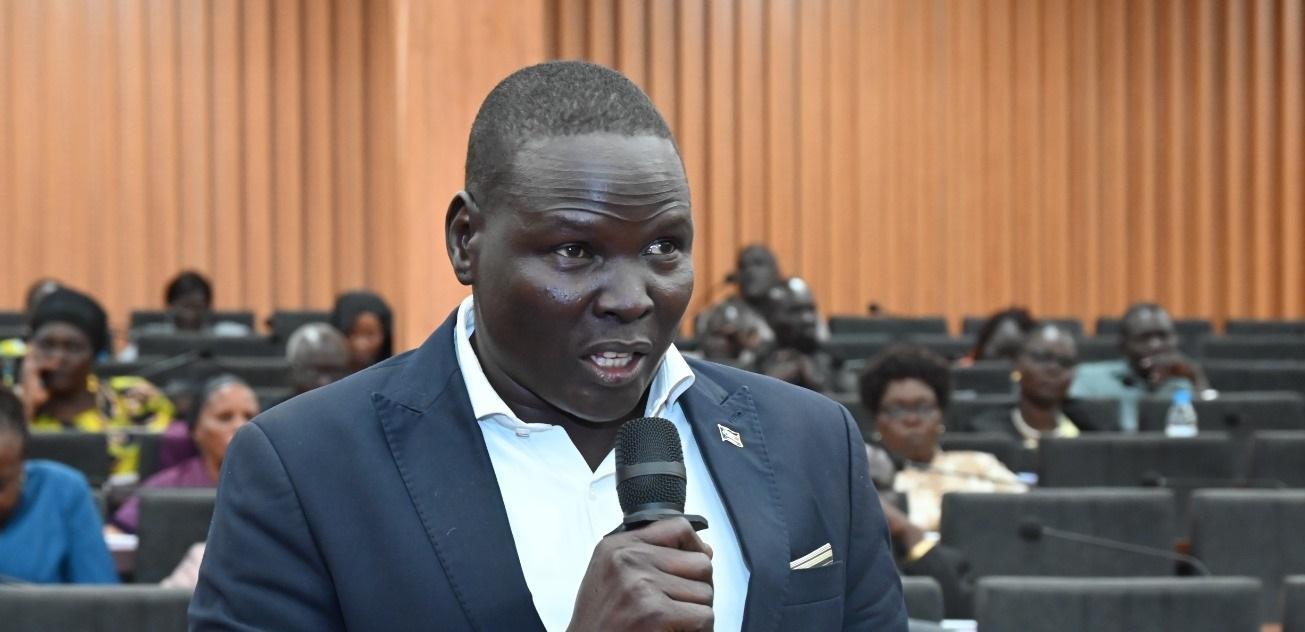Africa-Press – South-Sudan. South Sudan’s main armed opposition group, the Sudan People’s Liberation Movement-in-Opposition (SPLM-IO), has accused the government of fabricating criminal charges against its leader Riek Machar and other senior officials, warning the moves were an attempt to dismantle the country’s fragile peace deal and consolidate one-party rule.
The accusation came after President Salva Kiir Mayardit announced the suspension of Machar, who serves as the country’s First Vice President, in a presidential order broadcast on the state-owned South Sudan Broadcasting Corporation (SSBC).
The suspension also included Machar’s ally, Petroleum Minister Puot Kang Chol.
Just hours earlier, South Sudan’s justice minister Joseph Geng stated during a press conference in Juba that Machar and seven senior members of his group would face trial on a range of charges, including murder, treason, terrorism, destruction of property, and crimes against humanity.
Reath Muoch, the SPLM-IO’s deputy chair of National Committee for Foreign Relations, condemned the charges as baseless. He warned that the actions point toward authoritarianism and one-tribe rule in the world’s newest country.
“The SPLM-IO informs the people of South Sudan and the international community that these charges are manufactured by the SPLM-IG in a deliberate attempt to abrogate the Revitalized Peace Agreement, sideline Dr. Riek Machar and the SPLM-IO, and consolidate total authoritarian control and one-tribe rule in the country,” Muoch said in a statement.
“This pattern is evident through repeated violations of the Agreement, the unilateral removal of SPLM-IO officials, and ongoing attacks on SPLM-IO cantonment areas over the past several years,” he added.
The SPLM-IO asserted that the charges lacked evidence and accused the ruling Sudan People’s Liberation Movement in Government (SPLM-IG) of reshaping the judiciary to ensure political control over the case. The group pointed to the recent sackings of the chief justice and his deputy as part of a strategy to weaken judicial independence.
The opposition also criticized the appointment of Sarah Peter Nyot, the wife of controversial Vice President Benjamin Bol Mel, as Counsel General in the Ministry of Justice, describing it as evidence of nepotism and political capture.
“The absence of evidence against Dr. Riek Machar and SPLM-IO officials has led to their prolonged and unlawful detention. This is further illustrated by politically motivated reshuffles in the Judiciary and the Ministry of Legal Affairs, which saw the dismissal of the former Chief Justice, his deputy, and two former Ministers of Justice and Constitutional Affairs. Ultimately, this led to the appointment of Vice President Benjamin Bol Mel’s wife, Sarah Peter Nyot, as Counsel General in the Ministry of Justice and Constitutional Affairs as well as this new Minister,” the statement read.
“The Minister claims the accused are entitled to a ‘fair trial,’ yet simultaneously declares the matter ‘sub judice,’ barring public or diplomatic discussion. However, the very act of publicly announcing these charges constitutes political interference and prejudices the judicial process. These contradictions reveal the lack of impartiality and credibility within the justice system of the Republic of South Sudan,” it added.
The charges represent the sharpest escalation yet in tensions between the two factions, sparking fears of renewed instability in the oil-rich nation. Machar, a long-standing rival of Kiir, returned to Juba in 2020 to assume the role of First Vice President under the peace deal that established a unity government.
Efforts to advance the peace agreement have been consistently stalled, with each group accusing the other of undermining its implementation.
Tensions have begun to deteriorate since March, when the “White Army,” a Nuer ethnic militia that fought alongside the SPLA-IO during the 2013-2018 civil war, clashed with the South Sudan People’s Defense Forces (SSPDF) in the northeastern state of Upper Nile’s Nasir County.
The clashes, sparked by government attempt to disarm local civilians, resulted in hundreds of government soldiers being killed, wounded, and captured, and the brigade commander was killed. Days after the clashes, Ugandan troops were deployed into the country, and bombings in Nasir and eastern Nuer areas took place, with the military using a chemical component known as ethyl acetate.
The clashes resulted in high-profile arrests in Juba against Machar and several of his party members, including his chief of staff, General Gabriel Duop Lam, Petroleum Minister Puot Kang Chol, and several others.
The SPLM-IO maintains that under the accord, only a planned hybrid court, backed by the African Union, has the mandate to investigate crimes committed during the conflict. Any other prosecution, it said, constitutes an illegal political witch-hunt.
“The only institution legally mandated to prosecute violations committed by peace principals is the Hybrid Court for South Sudan, as provided under Chapter V of the R-ARCSS. Any other mechanism constitutes political prosecution, is illegal, and violates the Agreement,” Muoch said.
The opposition has called on Ethiopia’s Prime Minister Abiy Ahmed, who mediated the 2018 accord, and other regional leaders to intervene urgently. It also urged peace guarantors and the broader international community to hold Juba accountable for undermining the agreement.
Analysts say the confrontation risks derailing the country’s already delayed transition. Elections, originally scheduled for this year, were postponed until 2026 due to unresolved disputes over security arrangements, constitutional reforms, and power-sharing.
For More News And Analysis About South-Sudan Follow Africa-Press






